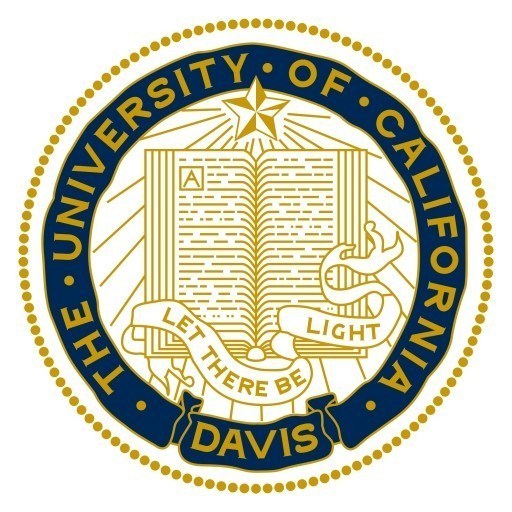Photos of university / #ucdavis
Students gain advanced knowledge of plate tectonics, structural geology, geophysics, geochemistry, petrology, rheology, stratigraphy, and geomorphology, in relation to evolution of the earth and planets; paleoecology, phylogeny reconstruction, and functional morphology in relation to biological evolution and paleoenvironments; environmental geology, geomorphology, ocean chemistry, paleoclimatology, and sedimentology in relation to modern/paleo climate change. Students graduate with the qualitative and quantitative skills necessary for professional research and teaching of earth structure and evolution; resource geology; paleobiology; paleoenvironments; modern/paleo climate change. The campus is well situated to provide access to field areas exhibiting diverse geologic and tectonic phenomena, to the Bodega Marine Laboratory, and to other UC research stations.
Core Courses: Because of the inherently interdisciplinary nature of geology, there are no specific core courses required for all students in the M.S. degree program in the Graduate Program in Geology.
Elective Courses (30 units) M.S. students must undertake a program of a minimum of 5 courses (for at least 12 units). The classes should be selected to provide breadth of knowledge appropriate for a M.S., and to provide the depth of knowledge appropriate in a student’s specialization(s). Classes must be selected in consultation with the Advisory Committee, and can include classes in geology or other fields deemed appropriate by the Committee. Classes may be upper-division or graduate level. Students are encouraged to include GEL 281, GEL 175 and/or GEL 160 among these courses.
As a part of the above course requirements, the student’s workload must include one (3 unit) graduate - 200 level course each from three of the six discipline areas in the Department (breadth courses):
- paleontology; 260, 261, 262
- sedimentology/paleoenvironments; 205, 206, 226, 228 (if a topic in marine sedimentology)
- structure/tectonics; 214, 216, 218, 219, 220, 295, 296
- petrology/geochemistry; 227, 246, 247, 250, 251, 253, 254, 255, 285
- environmental geology/geomorphology/resources; 235
- geophysics; 217, 219, 236, 238, 240, 241, 242
The remainder of the 30 units (non-breadth) must be made up of additional graduate and upper division courses, including at least 12 units of research (GEL 299) credit
Requirements
Applicants for admission must meet the University of California minimum GPA requirement for admission: a bachelor's degree with 3.0 overall gradepoint average. Other requirements for admission include:
- Hold a Bachelor’s degree. An undergraduate major in geology is typical for geology graduate students, but is not required; physics, biology, chemistry or other relevant majors may also be acceptable.
- Official transcripts from previous institutions attended
- Graduate Record Examination (General Test)
- English proficiency examination for international applicants who have not studied at an English speaking University: TOEFL or other University approved examination. International applicants must meet the Office of Graduate Studies minimum TOEFL score requirement (or equivalent for other University-approved examination).
- Three letters of recommendation.
- Statement of Research Interests, Statement of Purpose, and Personal History Statement.
- A Confirmed Faculty Advisor: Prior to admission, a Geology Graduate Program member in good standing must confirm that he/she is willing to act as the student’s faculty mentor.
- Students are also encouraged to submit a curriculum vita or resume with their application documents.
Scholarships
- University Fellowships
- Graduate Group Fellowships
- Teaching Assistantships (TA Appointments)
- Global Education






